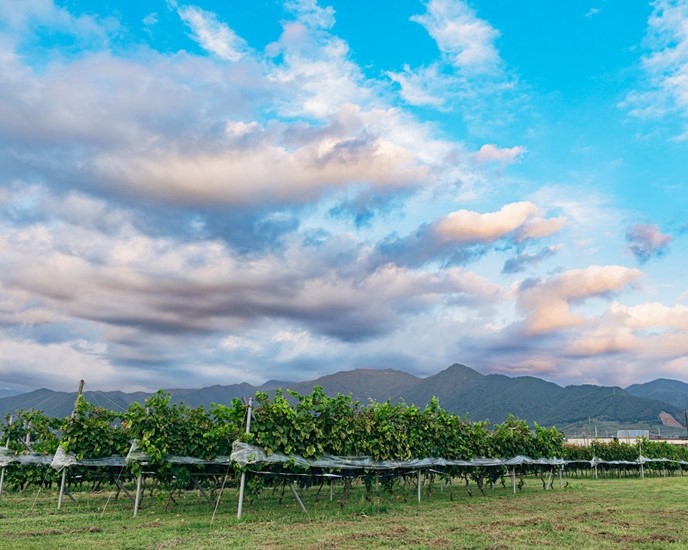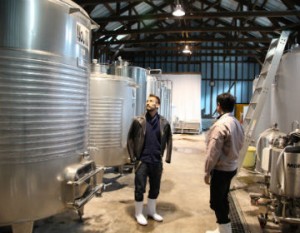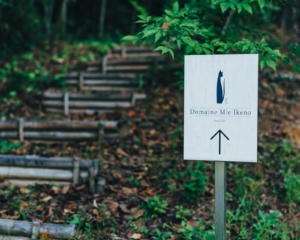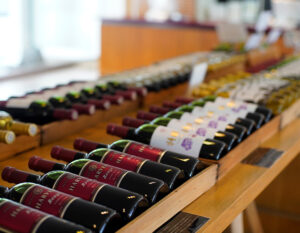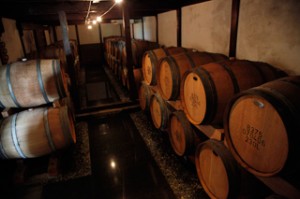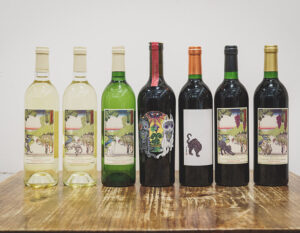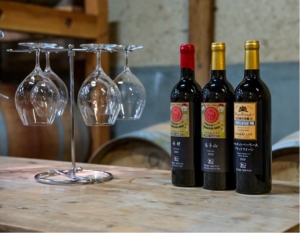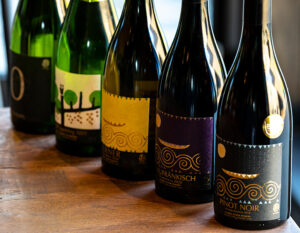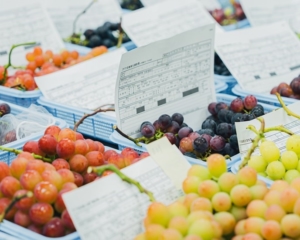In the Katsunuma district of Koshu City, where the wine culture has been prevalent since ancient times and wine has taken root in daily life, Shirayuri Brewing Company was started as a cooperative brewery by a group of grape farmers. What is the appeal of “Lorient Wine,” a brand that has been refined while building an open family winery?
Katsunuma’s traditional grape wine culture takes root in Katsunuma

In 1876, the Prefectural Industrial Research Institute was built on the ruins of Kofu Castle, and the following year, the Prefectural Brewery was completed.
At about the same time, in Koshu City, located in the eastern part of Yamanashi Prefecture, the establishment of Dainippon Yamanashi Grapes and Breweries Co. In the Katsunuma area in particular, grape growers gathered one after another to form a cooperative and embarked on a joint brewing project to produce wine for their own use. The resulting wine was called “Budoshu,” and a unique style was created in which the wine was stored in one bottle and drunk with a teacup. The wine was drunk not only at weddings and funerals, but also in everyday life, and became a familiar luxury item for the farmers. The custom of making and enjoying one’s own wine led to full-scale winemaking, and today the Katsunuma area is home to more than 30 wineries.
(hereinafter referred to as “Shirayuri Brewery”), founded in 1938, is another winery that was originally a cooperative brewing cooperative. The first generation established the Shirayuri Brewery Cooperative with neighboring farmers, which was incorporated in 1952, and the third generation, Takao Uchida, became president in 1995. After graduating from Tokyo University of Agriculture, Mr. Uchida went on to graduate school in the Department of Brewing and Fermentation, majoring in agricultural chemistry and applied microbiology, and worked for a liquor wholesaler for two years as a distributor before studying practical winemaking at a wine research institute in Provence, southern France. The family wineries he saw in France at that time became the foundation for Mr. Uchida’s passion to realize family wineries in Japan that value the warmth and hospitality that only family-run wineries can provide.
From a Corner of the Orient to the World
Shirayuri Brewery’s brand name “L’Orient” means “Orient” in French. The name “L’Orient” is derived from the idea of “producing high quality wines of European standard from Japan. The spirit of L’Orient Wine is to “create wines that aim for the world while respecting the local climate of Katsunuma.
If you come here and see the vineyards and experience the climate firsthand, you will surely understand our winemaking,” says Mr. Uchida calmly as he stands in the vineyards where hedges of grapes spread all over the land. Standing in the vineyards, Uchida says calmly, “What is important to us is that the grapes are healthy and free of disease. The spacing of the rows is wide and spacious to allow for good air circulation, and the grapes are set higher to prevent moisture from the ground and pests.
The well-maintained vineyards are said to get a breeze when the sun begins to set. The strong wind called “Sasago Oroshi,” which blows locally from the Sasago Pass on the east side of Koshu City, improves the flow of air and keeps the grapes healthy. It is truly an ideal place for fruit cultivation. Our wines are bottled with all of this scenery and atmosphere.
Thoughts on indigenous breeds born in Japan

He also grows his own European varieties, including Koshu and Muscat Berry A, Delaware, Adirondack, Merlot, Chardonnay, Cabernet Sauvignon, and Petit Verdot, but Uchida’s passion for the indigenous Japanese varieties of Koshu and Muscat Berry A is strong.
They are the most vigorous grape varieties in the vineyards, but when it comes to wine, they are quiet and humble, just like the Japanese. It is like a Yamato Nadeshiko (a woman of refined elegance and modesty),” Uchida says of Koshu. He also describes Muscat Berry A as “unlike European varieties, it puts health first. It grows vigorously in the vineyards. Although it may not be as flamboyant as Chardonnay or Cabernet Sauvignon, “It’s not about whether the grape variety is good or bad, it’s about the individuality of the grape,” he says. It’s interesting because the differences clearly show up in the wine,” he says. My current goal is to have people say that wines made with the Japanese varieties Koshu and Muscat Berry A are the best in the industry, and I hope that improved varieties born in Japan will exist in this region 100 years from now and produce more gorgeous and dignified wines.
Connecting Beloved Production Areas to the Next Generation

Since Shirayuri Brewery cannot produce enough grapes from its own vineyards alone, it purchases about 70% of its ingredients from contracted farmers. Mr. Uchida, who believes that “winemaking comes from the farmers,” communicates closely with his contract farmers and has built a good, face-to-face relationship with them. He says, “We can make wine because we trust the farmers in the area. That is the beauty of a small family winery. However, the production of grapes for vinification is declining due to the aging of the farmers and the shift to grape varieties for fresh eating. We must protect the Japanese varieties that have been passed down through the generations in this region and preserve them for future generations,” he said earnestly. The spirit of terroir that he learned in France lives on in Mr. Uchida: to preserve tradition, to love his region, and to pass on the entire environment surrounding the grapes to future generations.
Japanese wine is an important part of Japanese culture

In vinification, Uchida explains, “The quality of the grapes is high, so all we have to do is cleanliness and careful maturation. He has won numerous awards at domestic and international competitions, and was delighted when “L’Orient Koshu Vigne de Nakagawa 2021,” brewed with Koshu grapes grown by Mr. Kimiharu Nakagawa of Ichinomiya-cho, Fuefuki-shi, was served to the heads of state at the G7 Hiroshima Summit of the Group of Seven Advanced Nations in May 2023. The fact that a brand using the Koshu grape, which is indigenous to Yamanashi, was introduced as a representative wine of Japan is a great encouragement to the producers, who cultivate the grapes with great care every year. In addition, the fact that Koshu wine was offered as a wine that goes well with Japanese cuisine has increased awareness and attention of Koshu wine, and Mr. Uchida says emphatically, “I would like to deliver Japanese wine to the rest of the world as a part of Japanese culture.
While focusing on winemaking, in 2004 (Heisei 16), the company purchased a distilling machine from Italy and began producing and selling “grappa,” a traditional Italian distilled liquor. Grappa is made from the skins of Koshu and Muscat Berry A grapes, and is produced using the decompression distillation method, so it has a clean, mild taste and soft aroma. The rare domestic grappa is named “Uchida Budo Yakishu” and is now a signature product along with Lorient wine.
An open winery rooted in the community

Mr. Uchida believes that it is important to have as many people as possible visit the winery, see the vineyards and brewery in person, and enjoy the winery with all five senses. He also offers wine bottling and original label-making experiences, and has carved out a history as an open winery where families and groups can become familiar with wine and have a great time together.
The reason why we open our doors to a wide range of generations is because we hope that the people of Japan will love Japanese wine more and actively drink it. Mr. Uchida has always felt that wine is an important traditional industry that has built up the local culture, and that is why he says, “To have pride in this hometown. As the phrase “local production for local consumption” suggests, I want Japanese people to drink more Japanese wine.
While producing high quality wines, Shirayuri Brewery has inherited the grape wine culture that has been loved and nurtured in the region. They will continue to take on the challenge of becoming a family winery that conveys the charm of wine while preserving the Katsunuma wine region.



